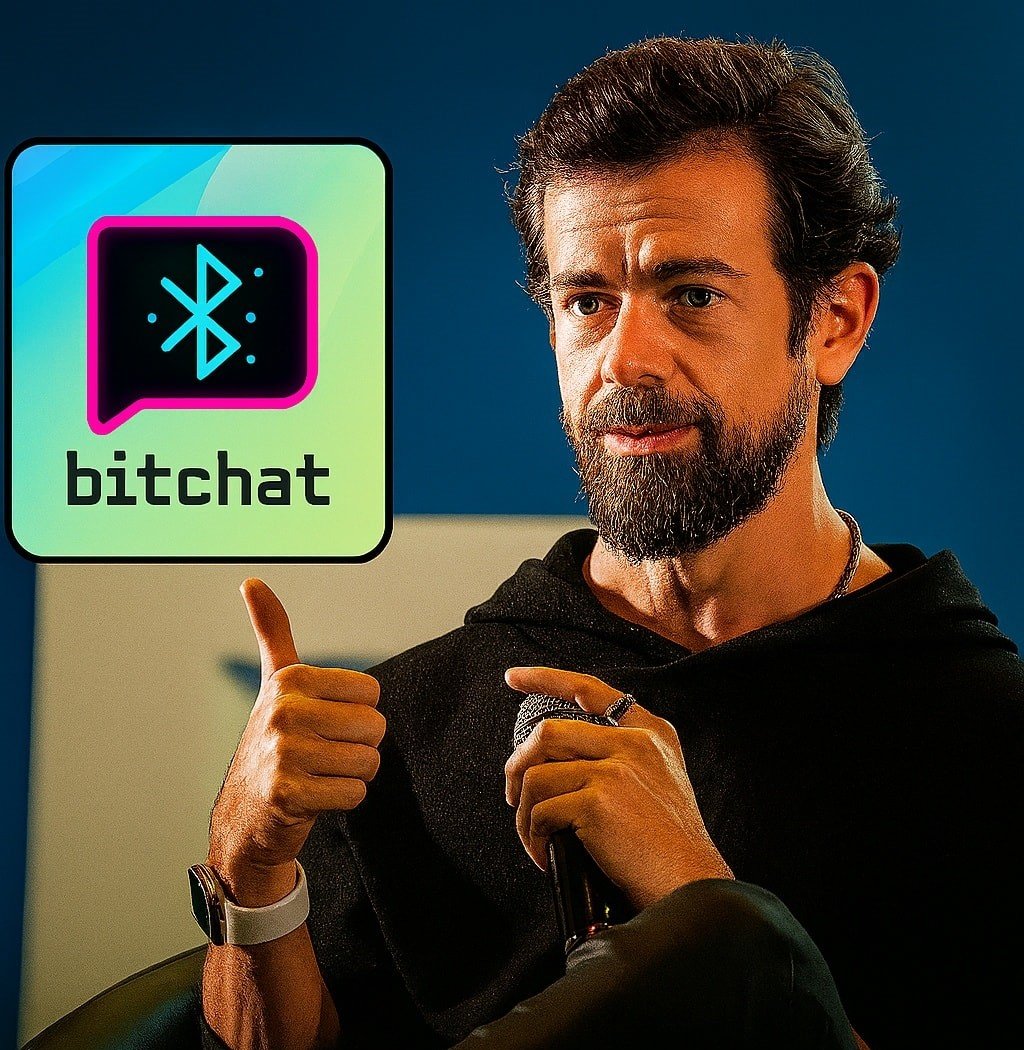
Jack Dorsey’s Bitchat: Revolutionizing Messaging with Bluetooth Mesh Technology
The Decentralized Communication Platform That Operates Entirely Offline
In an era of constant connectivity, Twitter co-founder Jack Dorsey has introduced a messaging application that challenges conventional communication paradigms. Bitchat, launched as what Dorsey describes as his “weekend project,” is a decentralized peer-to-peer messaging app that operates without internet connectivity, cellular service, or any central servers. Unlike traditional messaging platforms like WhatsApp or Telegram, Bitchat utilizes Bluetooth mesh networking to create ad-hoc communication networks, enabling users to send encrypted messages directly between nearby devices .
Dorsey first announced Bitchat on July 6, 2025, via an X (formerly Twitter) post where he shared that he was spending his weekend learning about “Bluetooth mesh networks, relays and store and forward models, message encryption models, and a few other things” . He noted that the app gives off “IRC vibes,” referencing the early internet relay chat systems that predated modern messaging platforms . The initial beta version quickly reached its 10,000-user maximum on Apple’s TestFlight platform, demonstrating significant public interest in this novel approach to digital communication .
How Bitchat Works: The Technology Behind Offline Messaging
At its core, Bitchat leverages Bluetooth Low Energy (BLE) technology to create what’s known as a mesh network. This approach represents a fundamental shift from traditional messaging architectures:
· Device-to-Device Connection: Instead of routing messages through centralized servers, Bitchat enables phones to detect each other directly via Bluetooth and form interconnected clusters . Each device in the network acts as both a client and a server, automatically discovering peers and relaying messages .
· Multi-Hop Messaging: While standard Bluetooth typically has a range of approximately 100 meters, Bitchat employs a relay system where messages can “hop” between multiple devices to extend its effective range up to 300 meters (984 feet) . This means a message can travel beyond direct Bluetooth range by passing through intermediate devices .
· Store-and-Forward Architecture: The app uses a store-and-forward model where messages are temporarily stored on devices if the recipient isn’t immediately available, then forwarded when they come within range . This allows communication even when users are temporarily offline or moving between locations.
· Dual Transport Architecture: Beyond Bluetooth, Bitchat also incorporates the Nostr protocol for internet-based messaging, creating a hybrid system that can switch between transports based on availability . The intelligent routing system automatically chooses the best transport method, defaulting to Bluetooth with Nostr as fallback .
The encryption methodology combines Curve25519 for key exchange and AES-GCM for encryption, implementing what the technical documentation describes as a “Noise Protocol” for identity and encryption . For internet-based messaging through Nostr, it uses NIP-17 encryption standards .
Key Features and User Experience
Bitchat incorporates several distinctive features that set it apart from conventional messaging platforms:
· Complete Anonymity: The app requires no phone numbers, email addresses, or user accounts . Users simply set their own display names, which can be changed at any time, eliminating the need for personal identifiers .
· Dual Chat Modes: Users can choose between public channels visible to all nearby users or send private encrypted messages to specific individuals . The app also supports password-protected rooms (group chats) for more controlled conversations .
· Privacy Protections: Bitchat incorporates a “panic mode” that immediately deletes all messages in a private chat when the app’s logo is tapped three times . All messages disappear by default after a certain time, further enhancing privacy .
· Platform Agnostic Design: The protocol is designed to be compatible across iOS and Android devices, with full interoperability between versions . The iOS version requires iOS 16.0 or later, while the Android version supports Android 8.0+ (API 26) .
· Text-Only Messaging: Currently, Bitchat only supports text-based messages, with no capability for images or audio files . This limitation helps minimize data transmission requirements suited to Bluetooth’s bandwidth constraints.
Practical Applications and Use Cases
Bitchat’s unique capabilities make it particularly valuable in specific scenarios where traditional communication methods fail:
· Emergency Situations: During natural disasters, power outages, or infrastructure failures that disrupt internet and cellular service, Bitchat can maintain local communication capabilities . Its decentralized nature means it remains functional when centralized infrastructure is compromised.
· Censorship Resistance: The app has seen significant adoption in regions experiencing internet shutdowns or heavy censorship. By late September 2025, the company reported 70,000 downloads from Madagascar within one week amid protests, with similar patterns occurring in Nepal where nearly 50,000 users downloaded the app on a single day . This follows the pattern of earlier Bluetooth messaging apps like Bridgefy, which was famously used by pro-democracy protesters in Hong Kong .
· Large Crowded Events: At music festivals, sports stadiums, or conventions where cellular networks often become overwhelmed by user density, Bitchat provides a reliable alternative for coordinating with friends or groups . The mesh networking actually becomes more effective as user density increases.
· Remote Locations: In rural areas or developing regions with limited internet infrastructure, Bitchat enables basic communication without requiring expensive data plans or network coverage .
· Travel Scenarios: The app works effectively on planes, cruise ships, subways, or other transportation environments where internet connectivity may be limited, expensive, or unavailable .
Current Availability and Platform Support
As of October 2025, Bitchat has expanded beyond its initial beta testing phase:
· iOS Availability: The app, listed as “bitchat mesh,” is available on the Apple App Store for devices running iOS 16.0 or later . Recent updates have added support for multiple languages including Spanish, French, German, Japanese, Chinese, and others .
· Android Availability: Android users can download the official app from the Google Play Store or access APK releases directly through GitHub . The developer cautions that several copycat apps have appeared on the Play Store, so users should verify they’re installing the official version from “permissionless tech, llc” .
· Cross-Platform Compatibility: The protocol is designed to ensure full interoperability between iOS and Android versions, using the same packet structure, encryption methods, and compatible service UUIDs .
Security Considerations and Limitations
While Bitchat incorporates strong encryption, the developers have been transparent about its current limitations:
· Identity Verification Challenge: A significant security consideration is the inability to reliably verify user identities due to the absence of required sign-up . This creates potential for impersonation, a vulnerability that security researchers have highlighted .
· External Security Review: The developers explicitly note that private messages “have not received external security review and may contain vulnerabilities” . They advise users not to rely on the app for sensitive communications until it undergoes comprehensive security auditing .
· Technical Constraints: Bluetooth’s inherent limitations mean message delivery isn’t instantaneous, especially when multiple hops are required. The bandwidth constraints also prevent support for media files, limiting communication to text-only messages .
The Future of Offline Messaging
Dorsey has indicated plans to enhance Bitchat’s capabilities, including implementing Wi-Fi Direct support to extend both range and throughput beyond what Bluetooth alone can provide . This would allow device-to-device connections over Wi-Fi without requiring traditional routers or access points.
The application represents part of a broader movement toward decentralized communication technologies that reduce dependence on traditional infrastructure and provide alternatives in increasingly fragmented digital landscapes . As Dorsey noted in his announcement, this project reflects his ongoing interest in “decentralizing tech” , aligning with his advocacy for Bitcoin and previous work on Bluesky.
Bitchat likely won’t replace mainstream messaging platforms for everyday use, but it provides a resilient communication alternative for specific scenarios where traditional networks are unavailable, untrustworthy, or impractical . As with any emerging technology, its long-term impact will depend on widespread adoption, continued development, and thorough security validation.





